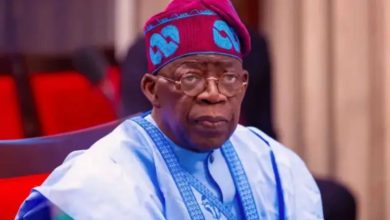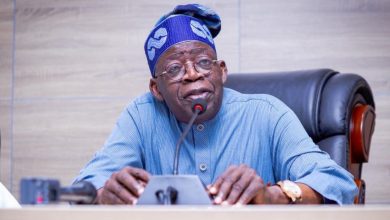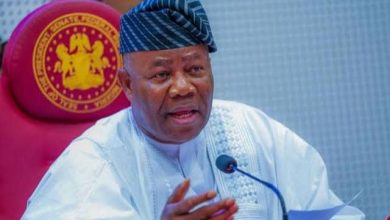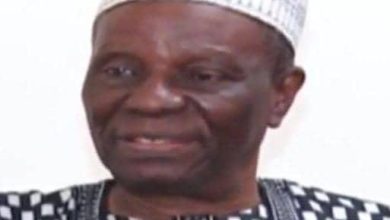Does Late Gen. Philip Efiong NOT Deserve A Monumental Place In Akwa Ibom History? (Part 2)
By Substance Nature
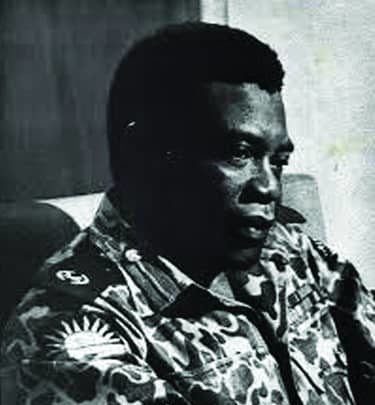
“The war deprived me of my property, dignity, my name. Yet, I saved so many souls on both sides…I felt I played a role which has kept this country united till today…I did what was ideal.” – Gen. (Dr.) Philip Efiong
On 17th December, 2019, the Alex Ekwueme Federal University, Ebonyi State, awarded late General Philip Efiong a posthumous Degree of Doctor of Science in Peace and Conflict Resolution (Honoris Causa).
Stating the reason for the choice of Gen. Efiong for the award in memoriam, the University’s Senate said it was “in recognition of his invaluable contributions to the peace and unity of Nigeria and his outstanding service as a military officer with a difference”. Apt. Epithetic. Son to the inimitable award recipient, Barrister Charles Efiong, apparently on behalf of the family, in his contemplative Facebook post had salutarily appreciated the university and its staff “who have made a score for our history”.
That the post-obit award came assumedly belatedly about 49 years after the Civil War and approximately 16 years following the General’s death has the potential to prompt the harmless query: “Why so long?” What however sounds like a nourishing consolation is that it may have been delayed but never forgotten by these discreet grateful ones who consciously and conscientiously cherished General Efiong’s selflessness and accordingly launched the donnish tribute as an overdue bad debt that had to be paid, to liberate beholden minds from the fetters of compunction.
Still on account of the inestimable premium the Easterners placed on Gen. Philip Efiong, another of the General’s son, his namesake, Prof. Philip Efiong, Professor of Theatre at the Michigan State University, USA, was in the country in December, 2019. He came on invitation as a guest speaker at the Centre for Memories, Enugu, where he delivered a paper on the topic – “Post-Biafra Healing: Reclaiming Our Shared Ties”. That was a retrospective recognition to perpetuate and titivate the Efiong’s ancestry.
Back in 2017, at a conference tagged: “Legacies of Biafra: Reflections on the Nigeria-Biafra War – 50 Years On”, held at the School of Oriental and African Studies (SOAS), London, from 21st to 22nd April, 2017, Prof. Philip Efiong again delivered an address on the avoidable cataclysm the Biafran War epitomized. Interestingly, on strategic display at the conference was the military hat won by Gen. Philip Efiong during the Civil War as a tactile historical memento and mental souvenir to his heroics –and heroism.
Compare this invigorating interest by the appreciative Easterners in the vestiges of the festered history to the infectious and near psychopathic amnesia that has invaded the other sections of the country. By Michele Charussi’s Irony of Fortune or Emil Braginsky and Eldar Ryazanov’s Irony of Fate, Nigerians living from 1967, dead or alive, have been thankless prime beneficiaries who have enjoyed gratuitous share of the socio-psychological booties of the fratricidal pogrom that the Civil War was, courtesy of the bravery and clairvoyance of the last man standing in the ominous instance Lt. Col. Chukwuemeka Odumegwu Ojukwu fled from the inferno he ignited to Ivory Coast, leaving all the cares and destiny of the entire Eastern Region on the stained shoulders of one indefatigable patriot of a man – General Philip Efiong.
A prophet has honour except in his own home. This is an inerasable statement of the greatest Teacher ever to have walked the earth, Jesus the Christ who, although enjoying super-celestial analogy to the foregoing, suffered the greatest ingratitude in human history from the very ones whom he poured out his life. It leaves me in great pains fighting to recall when last the name Philip Efiong or the thinnest link to that outgrowth of trampled history was deliberately mentioned in public discourse on any university campus anywhere in Akwa Ibom State, by way of homage. to his footprints on Nigeria’s existentialist evolution.
Whereas far flung areas like the indifferent north and nonchalant west may be excused in their iniquitous ignorance and ethnocentric pretentions, that cannot be the case with Akwa Ibom State, Gen. Efiong’s Bethlehem, where his bones were finally interred that November 6, 2003 – a funeral the Igbos stole the attendance. We should vociferously be enforcing robust disquisitions and advocacies on how best the powers can engrave and give this great Ibiono son a permanent seat among mortal angels.
Haven’t you observed that the Irokos and names of those from minority groups in the advancement of nationhood have all either been removed or hidden in a corner of the complimentary last pages of every of Nigeria’s history books from primary to tertiary levels? The only outstandingly unavoidable grand mistake of national recognition for a man of the minorities from our corner of the globe perhaps was granting, with great reservations among the chauvinists, that the face of Late Clement Isong, first indigenous governor of the Central Bank and finance manager of unassailable providence in the throes of the Civil War, appears on one side of present-day 1000 naira note. Or, perhaps, naming of the country’s Police Headquarters after the first indigenous Inspector-General of Police, Mr. Loius Edet. Since after then, such regrettable error of commission was never to occur again in any “authentic” chronicle of the country. Pity!
Sometimes the acclaimed “superPatriots” of the theory , to borrow from Erik Larsen’s 1992 comics of the savage dragon or the archetypal alter ego of John Quincy Armstrong in 2nd World War Nazi experimentation, make it sound as if they had a conspiratorial hand in Creation or as if it were some unplacatable curse, and therefore unforgivable crime, the geographical accident of one being born among the so-called minorities of Nigeria’s ancestry, simply on the logic of democratic numbers and nothing else. They forget too easily in their arrogant complacency that although the German Nazis captured John Armstrong in World War 2 and used him as a guinea pig for scientific experiments, he miraculous rose with supernal powers and destroy the base of his captivity. It was a matter of time.
So why can’t Akwa Ibom celebrate their own in stones and marbles and forget the chauvinistic war of majorism? We can do our own thing our minority way in defiant response to the injustice that the Nigerian Government has done Gen. Philip Efiong. Yes, we can. How much more distinguished in objective history than Gen. Philip Efiong are names like the Tafawa Balewas, Azikiwes, Awolowos, Mbakwes, Obasanjo’s, etc, all of whom have gold-plated roads and streets as well as befitting historical sites in Abuja and other cities across Nigeria?
RELATED: Armed Forces Remembrance Day: Late Gen. Philip Efiong’s Family Cries Out ‘ Govt Has Abandoned Us’
As far back as 1965, Gen. Philip Efiong was high enough in rank and ranking to deputize Brigadier. Wellington Bassey to whom former Barracks Road has been named. By the time Gen. Efiong eventually left the Army in 1970 after 25 years of life-threatening patriotic service, Gen. Edet Akpan was still savouring his position as a commissioned lieutenant (1968). Around that same period too, today’s Air Marshall Nsikak Eduok, was only two years in the Air Force, having been enlisted in 1968; just as the first indigenous military administrator of the State, Air Commodore Idongesit Nkanga, was a Cadet Officer in the Air Force (1970). All of these juniors have all been deservedly monumentalized to the credit of their contributions. But to the stigmatized protagonist, not even a market stall or kiosk has been prominently associated with his name by those who should by debt of necessity . This must be the most negligent act of ingratious oblivion.
Gen. Philip Efiong, the man who alone faced the bayonets of Operation Tail-Wind (January 7 – 12, 1970) in sweaty blood, the final onslaught that exacted the ultimate capitulation by Biafra while the smokes from the ruins of Owerri and Uli were still cascading, as if the previous massacre with about 21, 500 casualties by the Benjamin Adekunle-led Operation OAU of between September 2 – October 15, 1968 was sheer farcical comedy, deserves something better. Except something was urgently done with the benefit of hindsight to exonerate this reprehensible and unforgettable past, Akwa Ibom Government will be the worst of ingrates for reasons it can neither defend nor triumphantly plead innocence; for it is hard to tell if it was ingratitude or negligence that that has kept this matter till this moment!
In 2016, Obong Victor Attah had argued that Biafra was (and is) an Igbo agenda, yet this is the cause Obong Philip Efiong staked all he had. Could this implicature be a subtle alibi for the foregoing? Having a tiny string of a faded and fading plague on the cenotaph is justifiably insufficient.

